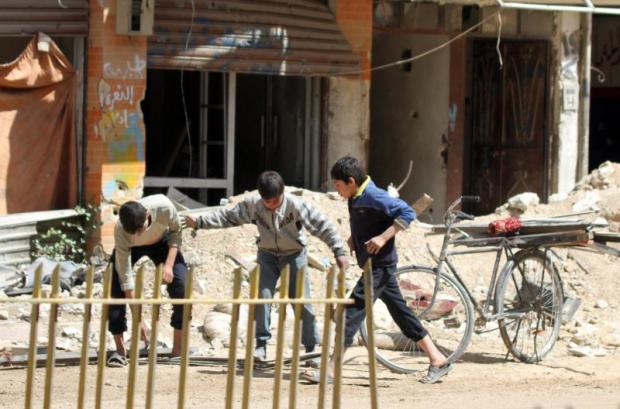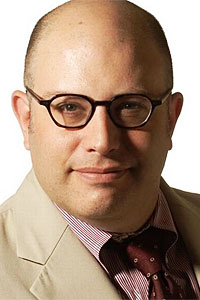
If the past is a prelude, we should expect a US strike sometime soon against Syrian airfields.
A little more than a year ago, Syrian forces gassed rebels. The grotesque crime earned a condemnation tweet from President Donald Trump. And on April 7, 2017, the president ordered 59 Tomahawk missiles to the Shayrat Airfield, the base from which the attack had been launched. He told his Chinese counterpart about it over chocolate cake at Mar-a-Lago.
Over the weekend it looked like history repeating. The Syrian regime once again appeared to gas its people. This time it was in Eastern Ghoutta, a Damascus suburb. Once again Mr Trump tweeted his outrage, calling the Syrian dictator "Animal Assad" and calling out Russian President Vladimir Putin and Iran as responsible for the attack because of their support for the regime.
All of this would appear to undermine Mr Trump's own simplistic calls for the US to bug out of Syria. If Mr Trump delivers on his warning to Mr Assad, Russia and Iran for the latest use of chemical weapons, he will be expanding the mission beyond fighting the Islamic State. (They too fight the Islamic State; indeed they claim the entire opposition to Mr Assad are such crazed jihadis.)
So instead of a real deterrent for future chemical attacks, expect another half measure. A base may be destroyed, but Mr Trump's dangerous policy will remain unless he truly changes course.
This president has unleashed US Special Forces, US bombers and US allies (mainly the Kurds) to destroy the Islamic State's positions in Syria. That is a good thing and a more muscular continuation of what Mr Obama timidly began in 2014.
But like Mr Obama before him, Mr Trump has been careful not to disturb the sinister plans of the Russo-Iranian-Assad coalition trying to consolidate the country that has broken apart since 2011. The humanitarian costs still stagger the mind. It's not just the horror of the gassings. Ghoutta for example, like Aleppo before it, has also been under siege. This means basic food and medicine have not reached the civilian population. As photos released late last year from Agence France-Presse showed, infants are literally starving to death.
There is also the displacement of Syrians. More than half of the population has been made homeless by this war. The dictator has also recently proposed a law that would allow the state to seize abandoned homes. Mouaz Moustafa, the executive director of the Syrian Emergency Taskforce, said this policy would allow the regime to reward his Iranian benefactors with the homes its militias forced families to flee.
All of this should compel civilised nations to band together and stop these fiends. But America at this moment has a special responsibility. Despite the gains from Mr Assad and his Russian and Iranian patrons in Syria in the last two years, the war is far from over. For example, the territory east of the Euphrates River that the US and its mainly Kurdish allies have liberated from the Islamic State is not yet under Mr Assad's boot.
Here the US has a chance to at least give these newly freed towns and cities a kind of safe haven. There is a precedent to do so. Like Mr Trump, George H W Bush decided he wanted no part in trying to liberate Iraq after driving Saddam Hussein's army out of Kuwait in 1991. After Saddam interpreted this policy as a green light to punish the Kurds in northern Iraq though, Mr Bush changed course when Kurdish families were driven into the mountains. Mr Bush established a no-fly zone and the US began to protect this Iraqi minority in the period between the two Gulf wars. While the Kurdistan Regional Government today is far from perfect, it is far better off because Mr Bush changed his mind.
Mr Trump has an opportunity here to change his mind too. He doesn't have to commit to rebuilding all of Syria. But at the very least he can make good on America's debt to those Syrian Kurds who helped defeat the Islamic State, fighting the enemy over there so Americans don't have to fight so many over here (to borrow the phrase of another President Bush). This would require a policy to at least protect eastern Syria from Mr Assad's war machine.
The alternative is catastrophe and dishonour. If Mr Trump really ends up following through on his promise to get out of Syria (perhaps as early as October), he will be leaving the people who were liberated from ISIS to be slaughtered and displaced. He will be helping Iran complete its land bridge to the Mediterranean Sea. He will have committed American blood and treasure to advance the strategic aims of America's enemies.
That's a legacy that would shame any president. - BLOOMBERG VIEW
Eli Lake is a Bloomberg View columnist who writes about politics and foreign affairs.
